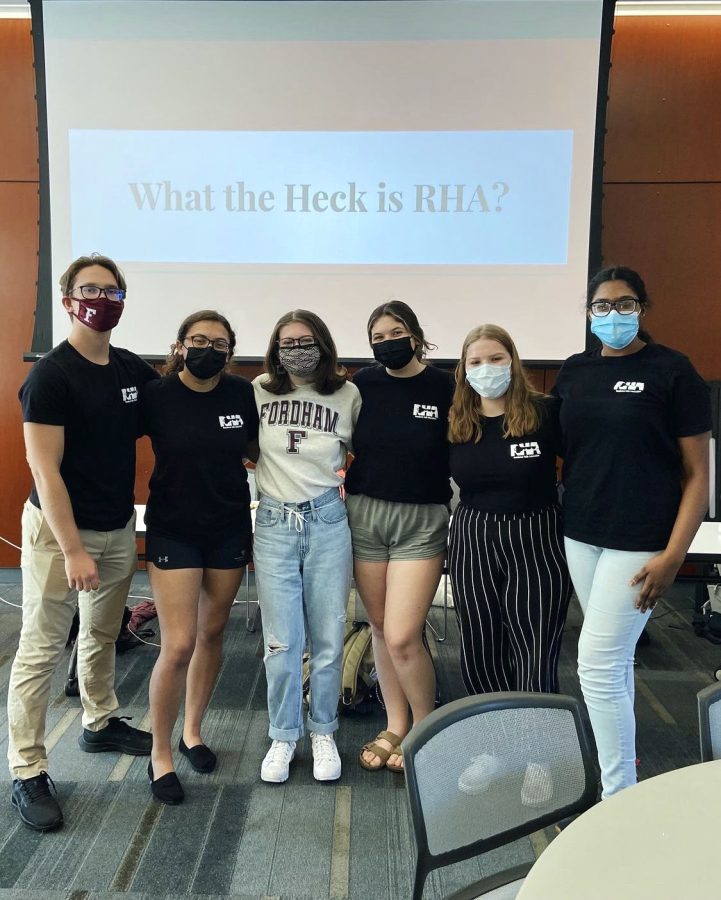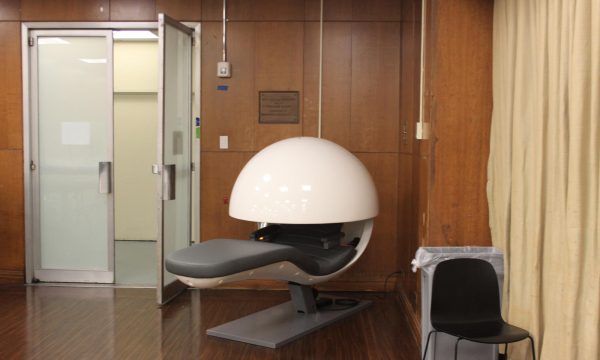RHA Highlighted During Their Club Leadership Transition
The transition of power, often changing between academic years, has proven to be difficult for clubs — both big and small — at Fordham. As the executive boards change annually, the members must be certain to pass down club values, traditions, organizational techniques, new member recruitment tips and general guidelines to their successors. Some of the larger clubs on Fordham’s campus tend to struggle with member retention rates, while the smaller clubs struggle equally as much to entice new members to join.
The Fordham Residence Hall Association (RHA) weighed in on the matter, stating that leadership transitions are a constant work in progress for any organization, especially due to the unpredictability of the pandemic. RHA has worked to implement three main techniques to ensure there is a smooth transition of power from one executive board to the next.
With the first technique being hosting an early election in April, RHA ensures the newly elected individuals have time to learn the full extent of tasks they are expected to complete in their new position and shadow whoever holds their current position.
As Kate West, FCRH ’22, chief of staff of RHA explains, one of the positives of hosting an early election is giving the new board members the ability to host the “final few executive board meetings so they understand the structure.” The date also allows incoming members to practice running general board meetings with the support of the current executive board.
Due to the early date of their executive board election, RHA is able to allow the new leaders to shadow the outgoing leaders during some of their main events, such as the Under the Tent spring dance or Fordham Dance Marathon. This collaboration of the outgoing and incoming board members allows for them to gain a full picture and understanding of their position and what they will have to coordinate within events. RHA strongly recommends the intermixing of both e-boards in the final weeks to other clubs, so they learn the in and outs of their individual positions and are able to quickly begin work.
RHA claims consistency is the key for a smooth transition between academic years. Guidance for newly elected individuals by both returning advisors and returning executive board members is an important factor in creating a supportive group to, as West puts it, “guide the newer e-board members and keep initiatives from previous years going.”
Additionally, according to West, RHA has found former executive board members to be extremely helpful in the transition of power process, stating that RHA has, “found that many of them are more than willing to help and support the member that currently holds their position.” West also cites her own experiences on the matter, stating that she has consulted with the past chief of staff for advice on certain matters, and found the experience to be very helpful.
This year, to further smooth the transition, RHA is implementing position “binders.” West describes the inspiration behind the idea as having come from the result of the discovery of, “RHA binders from 2008 and before for some of the positions which were chock full of valuable information on how RHA was run.”
Instead of using physical binder copies, these “binders” will be Google Drive folders, through which current members can, “add templates of things they found useful, outline the structure of their role and also add general suggestions and tips for the position.”
The RHA team is hoping that the implementation of these “binders” will alleviate the stress and overwhelming feeling that new executive board members often feel, as well as guarantee the continuation of club initiatives from the previous year.
As for other clubs struggling with the transition process between executive boards, RHA recommends the creation of a binder policy, similar to the new one they just recently adopted. West also stresses the importance of communication and connection, saying clubs should, “make sure the former leadership and the incoming leadership is connected so the new leaders have someone to go to if they need guidance.”
She also recommends that each member takes the time to reflect on their experiences in the organization prior to leaving, and then implement changes accordingly.
Although the transition of power can be difficult between an outgoing and incoming executive board, as the RHA board explains that it is manageable through the implementation of specific transition tactics.
RHA acts as an example of one of the many transitions of club leadership at the university, showcasing how the torch is passed down from one class to the next. Other organizations at Fordham, such as Campus Activities Board (CAB), have also undergone a period of transition in preparation for the upcoming Fall 2022 semester.

Grace Galbreath is a junior from Willow Grove, Pa. majoring in communications and journalism. She began writing for the Ram spring of her freshman year...














































































































































































































